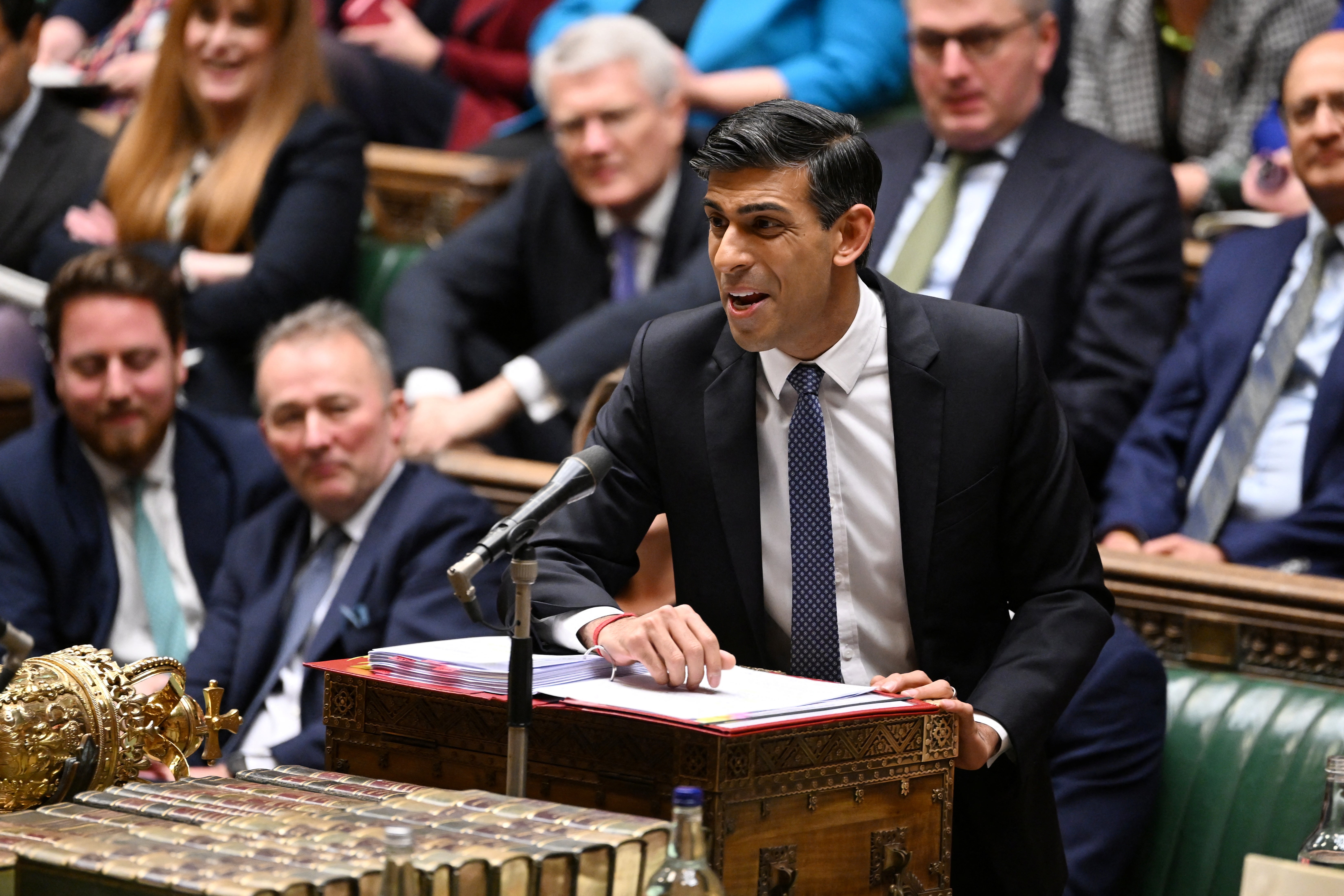The government’s asylum plan is at odds with economic reality
Editorial: Britain needs more people to come and build their lives in the country, for the sake of the prosperity of all of its citizens

At last, Rishi Sunak has come to realise that it is the slow speed of asylum applications that creates so many of the other problems. As Keir Starmer has pointed out, only 4 per cent of the asylum applications by small boat migrants in 2021 were processed.
The vast backlog of cases has created the problems at Manston, including a death from diphtheria and the subsequent dispersal of the infectious disease, and the extensive use of hotel accommodation, with asylum seekers simply disappearing. Some 10,000 asylum seekers are to be found new accommodation in holiday parks, former student halls, and surplus military sites – hardly ideal or sustainable locations.
Now, after 12 years of Conservative-led governments, Mr Sunak has resolved to put some resources into the effort rather than ignoring it and the squalor and disease that such neglect has created in the shanty camps. The money on new specialist units and advisers will be well-spent, provided that the sped-up processes remain fair and lawful. Mr Sunak has set himself the target of ending the backlog of refugee claims by the end of next year, which is ambitious. He is right to want to resolve the issues, provided fairness and compassion are at least as important as increasing the productivity of the system.
He is also right to want to target the criminal gangs who run the trade in people, and abuse the system, though the focus on Albanian refugees is questionable – all asylum seekers need to be processed fairly and quickly, and the international conventions don’t recognise discrimination on such grounds of nationality.
Asking victims of modern slavery to provide “objective evidence” of their status sounds an unfairly high bar to set for such vulnerable individuals. Theresa May, responsible for the Modern Slavery Act, is right to warn that “people-smuggling and human trafficking are distinct and separate crimes and should not be treated or spoken of as one”.
The fundamental irony at the centre of the migration and refugee debates remains virtually untouched by the prime minister’s proposals. It is that the UK is painfully short of all kinds of labour and skills to help restore the economy to steady, non-inflationary growth, and thus raise living standards.
Britain needs more people to come and build their lives in the country, for the sake of the prosperity of all of its citizens. It is absurd that the government is wasting huge sums of money on the unworkable Rwanda scheme and on trying to keep people out while it suffers the continuing problems of trying to run businesses and public services without the staffing they need. Vacancies remain at near record levels, and pressure on wages, at least in the private sector, is pushing business costs higher and embedding inflationary pressures – increasing the risk of a deep recession.
Britain’s sluggish growth is universally agreed to be its top economic problem. Yet part of the answer is the very people Mr Sunak seems so keen to deport at any cost. It doesn’t make much sense.
Join our commenting forum
Join thought-provoking conversations, follow other Independent readers and see their replies
Comments
Bookmark popover
Removed from bookmarks